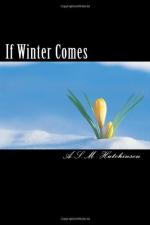The first book he had ever bought “specially”—that is to say not as one buys a bun but as one buys a dog—was at the age of seventeen when he had bought a Byron, the Complete Works in a popular edition of very great bulk and very small print. He bought it partly because of what he had heard during his last term at school of Don Juan, partly because he had picked up the idea that it was rather a fine thing to read poetry; and he kept it and read it in great secrecy because his mother (to whom he mentioned his intention) told him that Byron ought not to be read and that her father, in her girlhood, had picked up Byron with the tongs and burnt him in the garden. This finally determined him to buy Byron.
He began to read it precisely as he was accustomed to read books,—that is to say at the beginning and thence steadily onwards. “On the Death of a Young Lady” (Admiral Parker’s daughter, explained a footnote); “To E——“; “To D——” and so on. There were seven hundred and eight pages of this kind of thing and Don Juan was at the end, in the five hundreds.
When he had laboriously read thirty-six pages he decided that it was not a fine thing to read poetry, and he moved on to Don Juan, page five hundred and thirty-three. The rhymes surprised him. He had no idea that poetry—poetry—rhymed “annuities” with “true it is” and “Jew it is.” He turned on and numbered the cantos,—sixteen; and then the number of verses in each canto and the total,—two thousand one hundred and eighty.... Who-o-o!... It was as endless as the seven hundred and eight pages had appeared when he had staggered as far as page thirty-six. He began to hunt for the particular verses which had caused Don Juan to be recommended to him and presumably had caused his grandfather to carry out Byron with the tongs and burn him in the garden. He could not find them. He chucked the rotten thing.
But as he was putting the rotten thing away, his eye happened upon two lines that struck into him—it was like a physical blow—the most extraordinary sensation:




